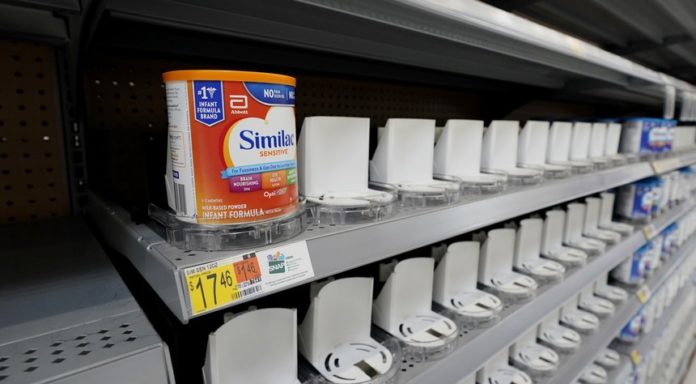Nearly a year ago, the first signs of a shortage in infant formula were made public. Today, the problem continues to affect tens of thousands of parents all across the country.
This is partly because the Biden administration stopped treating the issue like a crisis. The U.S. Census Bureau said that the infant formula “out of stock” level was 18% at September’s end. 5% is considered a problem.
Wall Street Journal:
Rosa DeLauro, a Democratic Representative from Connecticut, is the Chair of the House Appropriations Committee. She stated that she will introduce legislation next month to address the root causes of the supply crisis and foster the growth of smaller domestic producers, but declined to provide specific details.
She stated that market consolidation is the “underlying piece” of all this.
Market consolidation is a major problem. If there are only three to four major formula brands and one of them has to close down because of manufacturing problems, shortages will be inevitable.
This is because U.S. law prohibits the importation of baby formula from overseas unless it conforms to the strict guidelines for manufacturing and labeling. Although the Biden administration was able to temporarily waive these requirements, they are anti-competitive and should be permanently relaxed.
There’s also the issue of FDA incompetence, which Republicans believe must be addressed before they agree to fund the agency.
Top Republicans threatened to stop future funding for Food and Drug Administration until the agency provided more explanations for its mistakes during the formula shortage. They also called an internal review insufficient.
“I cannot support rewarding FDA for additional resources after a failure like this,” Sen. Richard Burr (R.N.C.), the top Republican in the Senate’s health committee wrote this month.
Officials claim that one of the biggest problems is families hoarding and overbuying formula. They are not wrong, given the FDA’s record of ensuring a large supply of the product.
This crisis began with the closing of the Sturgis (Mich.) Abbott plant. It was the largest such facility in the world. After being warned in October 2021 about potential problems at the facility, FDA finally closed it down in February.
It was almost a disaster as hundreds of babies who needed the Abbott specialty formula were forced to visit the hospital after they couldn’t get it. This was a terrible tragedy.
What lessons can we learn from this one to avoid it happening again?


